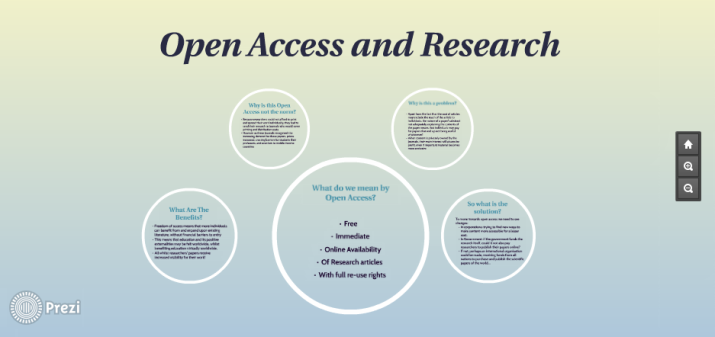Topic 5 – The Open Access Dilemma
Please click here for presentation: http://tinyurl.com/l6h7vry
In the 3rd century BC, the Library of Alexandria was constructed, seeking to collect literature and papers of the world to act as a center for learning, drawing many of the time’s most notable scholars to its halls.
Today, with the ability to share knowledge so freely with only a computer and internet connection required, one would have thought this concept could have been reproduced on a worldwide scale, yet still as per Shockey and Eisen (1), prices of scientific Journals continue to rise in price in proportion to interest rates year on year, making them less accessible to students and libraries. The issue that arises is that scientists need to be able to make their work as available as possible, whilst still being compensated for their work.
While platforms such as Elsevier seek to combine papers from multiple Journals, aggregating them and selling complete access to universities, you may still only access this material if you belong to an establishment that subscribes to the content. The importance of universal education, however, lies in the assumption that the personal returns to education are in fact less than that gained by society, affirmed by Moretti (2). This spillover effect contributes to the belief that universally accessible information and education may in fact be more beneficial when supplied as a public good (3) than being privately profited from by Journals.
Open access, whilst making content free for end users, must come at a cost to someone. As Geib (4) writes, this often comes down to the author themselves to cover their research or by way of a grant. However as the government provides funding for universities for research already, there exists the possibility to cut out the middle-man, in the form of private Journals, meaning that the state can both fund and publish the work of its students.
While this may seem beneficial to authors and society, it remains the case that papers must be reviewed by the quality of their content before publication, and while projects such as Wikipedia itself have shown that a free access source of information may be successful in providing high quality content, university papers will remain more complex and therefore more difficult to screen for quality issues when submitted in large quantities.
If a sufficient peer-review system can be put in place, universal Open Access may yet become a reality.
Words: 394
Sources:
(1) Open Access Explained! – Piled Higher and Deeper (PHD Comics)
(2) Estimating the Social Return to Higher Education: Evidence From Longitudinal and Repeated Cross-Sectional Data – Enrico Moretti
http://www.nber.org/papers/w9108.pdf
(3) Public Good – Wikipedia
http://en.wikipedia.org/wiki/Public_good
(4)Advantages and Disadvantages of Open Access – Adam Geib
http://www.edanzediting.com/blog/advantages_and_disadvantages_open_access#.VUZ6JvlViko

